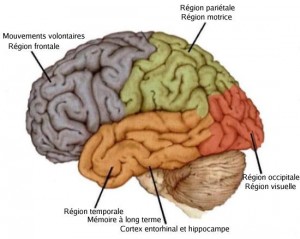Neuropsychology

Neuropsychology is a clinical and scientific discipline at the meeting place of neurosciences and psychology. This discipline was founded more than a 100 years ago mostly from the observation of adults with brain injuries. The role of the neuropsychologist is to analyse cognitive disorders (memory, attention, concentration, language, cognitive functions, etc.) and emotional disorders associated with functioning of the brain.
Neuropsychology is a scientific medical discipline based on advances in the brain and its functioning (functional anatomy of the brain, localisation of its structures, maturation mechanisms, validated clinical research protocols, recording cerebral activity by functional imaging and electrical recording in different tasks) relating to neurosciences and cognitive sciences.
The neuropsychologist is approved to undertake full assessments to examine both cognitive functions, behavioural disorders and psycho affective disorders.
Why ask for a Neuropsychological examination ?
- Help in diagnosis
- Certain diseases in elderly patients : Parkinson’s Disease, Alzheimer’s Disease, Korsakoff syndrome, Fronto-temporal dementia,…
- Learning disabilities : dyspraxia, dyslexia, dysgraphia, dyscalculia, visual perceptual/visual motor deficit,…
- ADHD
- Depression and Anxiety disorders, etc.
- Help to determine the extent of brain lesions at a particular time (CVA, Epilepsy, Head injury, Side effects of intensive treatments, etc.).
- Distinguish neurological disorders from disorders which have a psychological/psychiatric cause.
- Afterwards this evaluation helps with the care, if necessary and/or if wanted :
- psychotherapy, rehabilitation, relaxation
- make contact with medical and para-medical partners (orthophonists, psychomotor practitioners, etc.) and those in the educational world (teachers, educational psychologists etc.)
- All to optimise the effectiveness of educational and therapeutic interventions and avoid secondary psychological harm.
Thanks to all the standardized equipment we use, we can evaluate :
- The different types of memory in the verbal and visual field (autobiographical memory, semantic memory, episodic memory, working memory,…).
- Intellectual efficiency (IQ : WAIS , WISC ).
- Executive functions that are the conductor of cognition (capacity for judgment, reasoning, planning, implementation strategy, inhibition, mental flexibility,… ) by coordinating actions and thoughts finalized toward a goal and intervening in non-routine situations.
- Attention (sustained attention, selective attention, divided attention… ) and concentration.
- Instrumental functions (language, fine motor skills (gnosias), praxias, calculation,…).
- Visuo-spatial functions and Neuro-visual functions.
- And not omitting emotional and behavioral disorders,…
The neuropsychological assessment is carried out as follows:
- An interview/Case history with the patient and the family (when possible). This time helps us understand the patient’s complaints and concerns. But also to examine all of the information (medical, psychological, occupational and/or educational).
- After the first appointment, i’ll find the most appropriate tests for each patient and their complaints. These evaluations are more ofter done in a few sessions.
- Return of results immediately after the tests are performed.
- A written report is produced, as fast as possible (either by letter or e-mail) and is given to both the doctor and the patient.
